How Does BioLiNE® Help Canola Production?
Our BioLiNE® technology transports and assimilates nutrients, and other plant beneficial ingredients more efficiently. BioLiNE® products enhance crop health through their entire life-cycle from seeding to harvest by supplying electrolytes and establishing electrochemical balance in plants. Combining this highly beneficial attribute with improved bioactive chemistry, superior cell permeability, and accelerated nutrient exchange is our advantage.
- Planting: use as a seed coat, impregnated on dry fertilizers, or tank mixed with liquid fertilizer for in-furrow or side-dress applications
- 1 to 3 Leaf Stage: tank mixed with herbicide or other nutrient inputs
- 2 to 6 Leaf Stage: tank mixed with fungicide or other nutrient inputs
Recommended BioLiNE® Application Timing and Rates
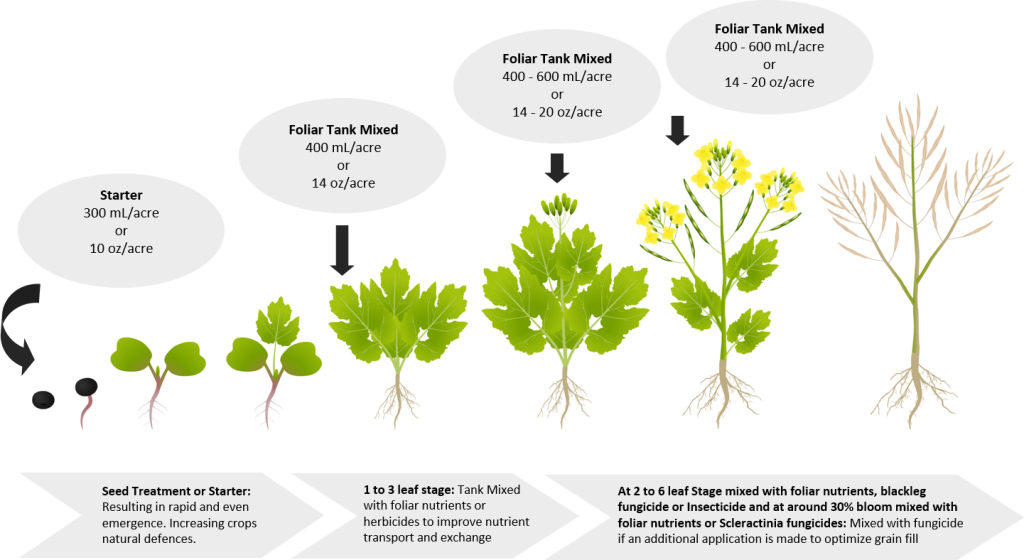
Trial Results
Application of BioLiNE® Fulvic Acid Under Drought
Glutathione, ascorbate, and catalase are all chemical species involved the transformation and detoxification of radical oxygen species (ROS) to prevent damage to the plant. ROS play an important role in plant growth and development. When their concentration increases upon stress, oxidative stress occurs which can lead to lipid peroxidation and cell damage. The activity of these chemicals increases when a plant is exposed to abiotic stress such as drought. The DPPH assay is used to predict antioxidant activities by mechanism in which antioxidants act to inhibit lipid oxidation. If antioxidant levels have increased, the amount of DPPH scavenging is also expected to increase.
Controlled environment trials showed that drought plants treated with BioLiNE® had higher antioxidant (ascorbate and glutathione), catalase, and DPPH levels which shows the ability of fulvic acid to help canola increase its drought stress response by mediating ROS that would damage the plant.
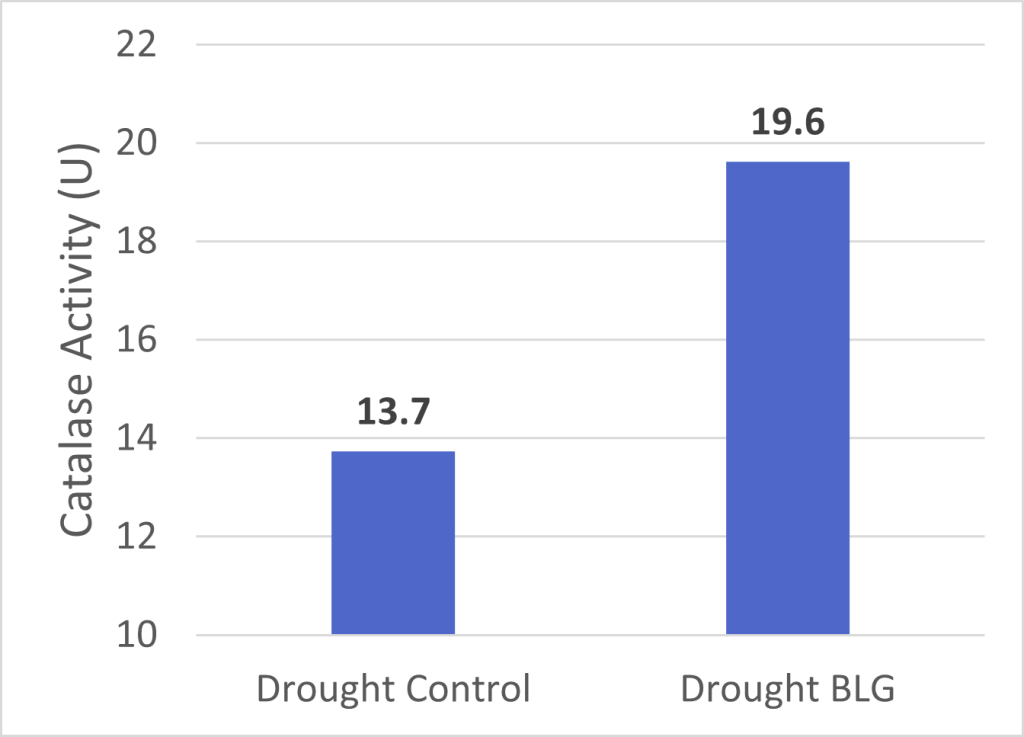
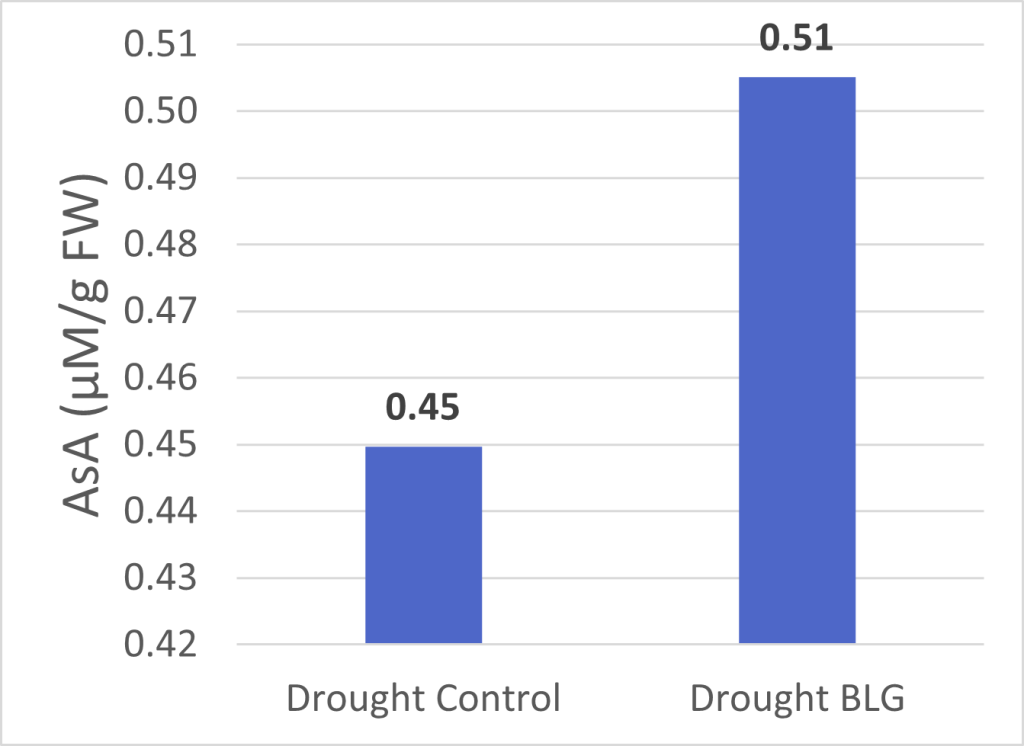
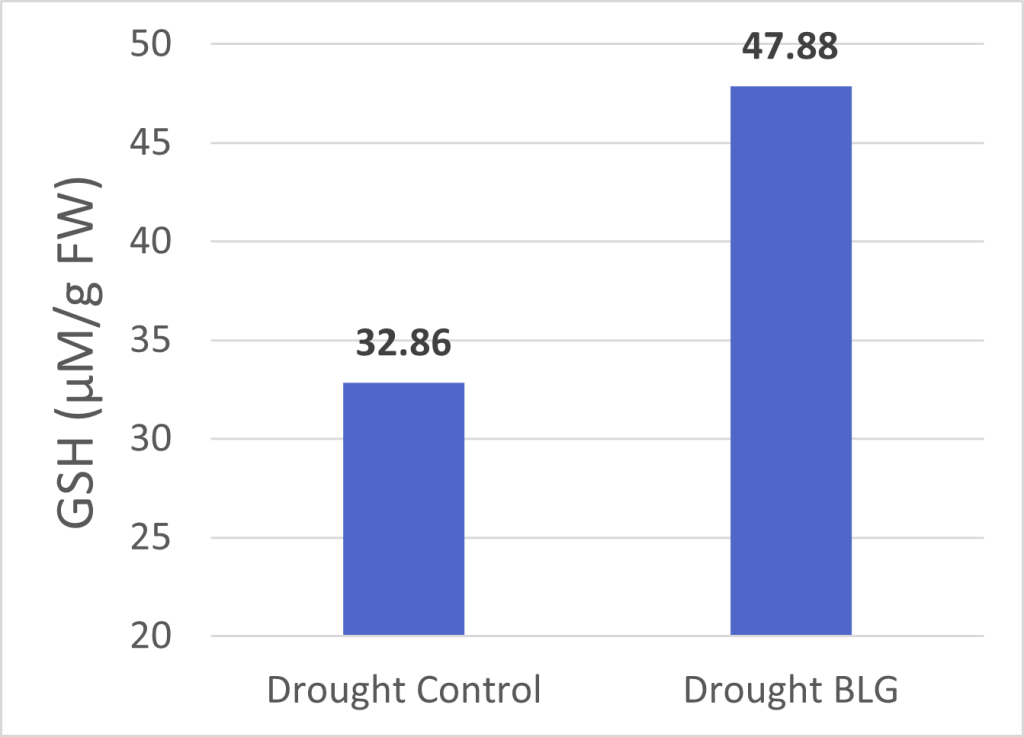
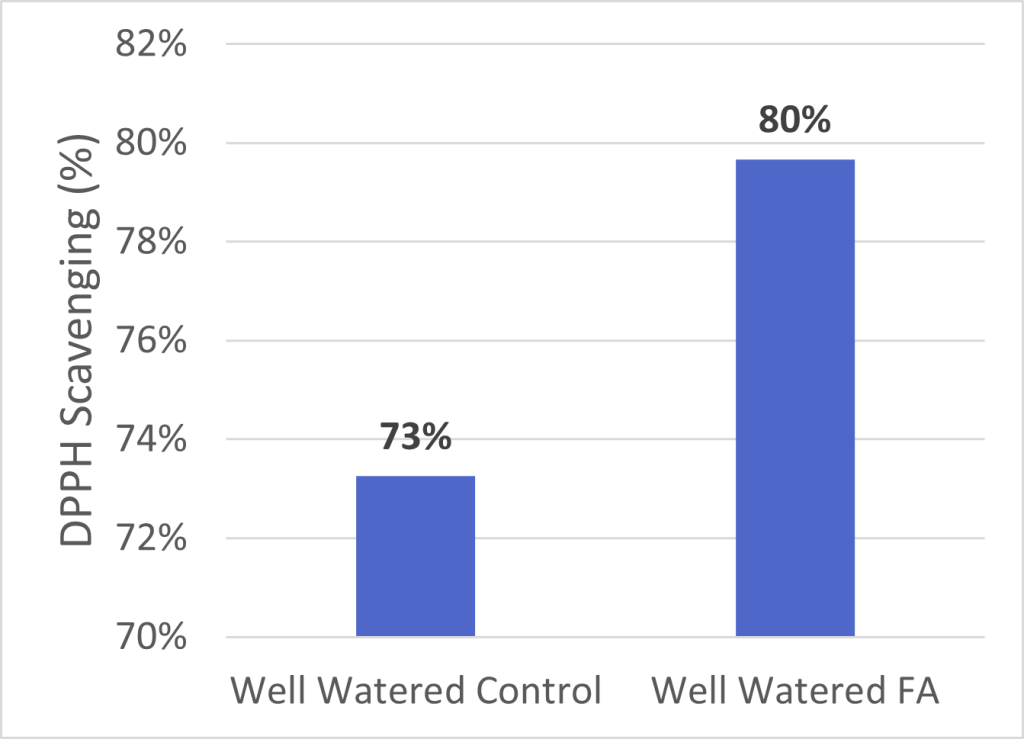
Drought Stress Amelioration Wintering Hills Colony 2021
Average yield for the Southern Alberta in 2020 was 44.0 bu/acre. Due to an intense drought year in 2021, this average decreased to 16.1 bu/acre (37% yield) (Alberta Crop Report).
With application of BioLiNE® Gold over 8 different farms in the Wintering Hills Colony, the average canola yield increased to 27.0 bu/acre, (61% yield compared to 2020 data and 64.9% increase over county average in 2021).

